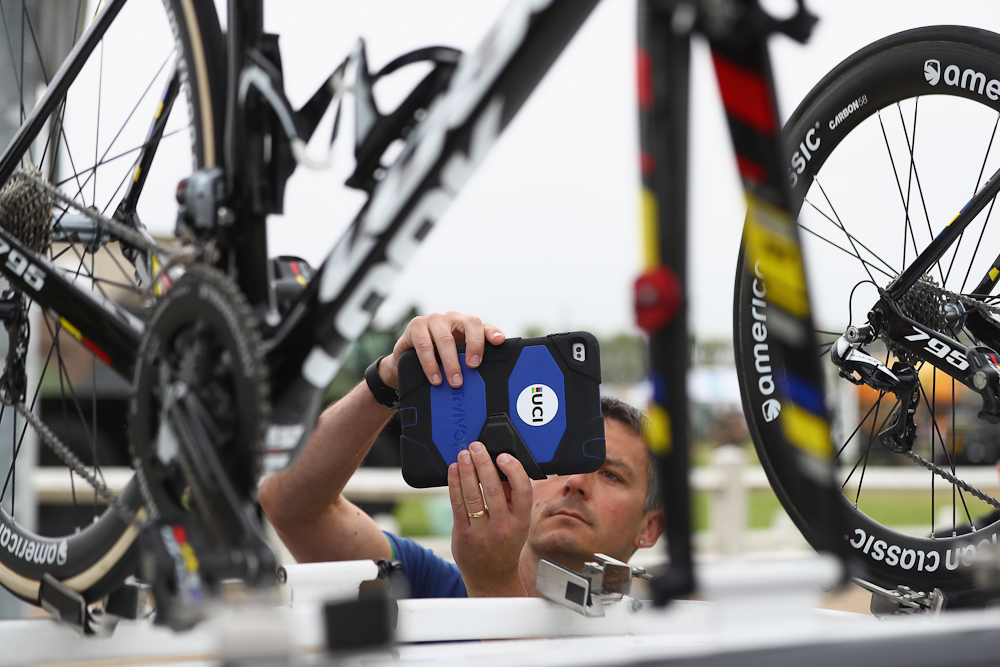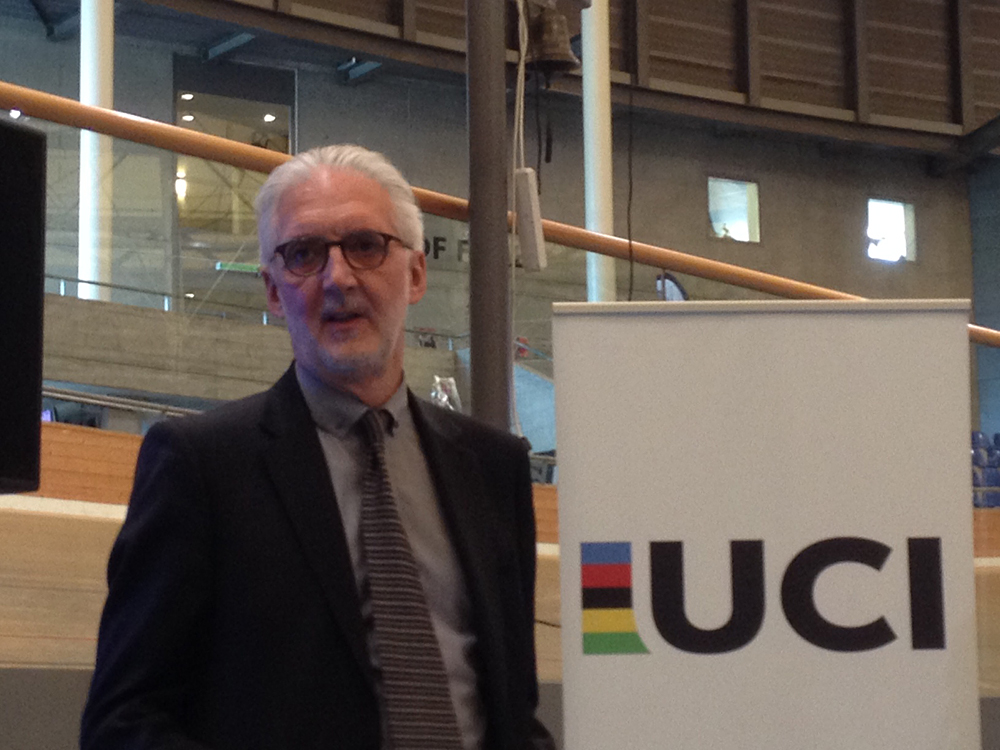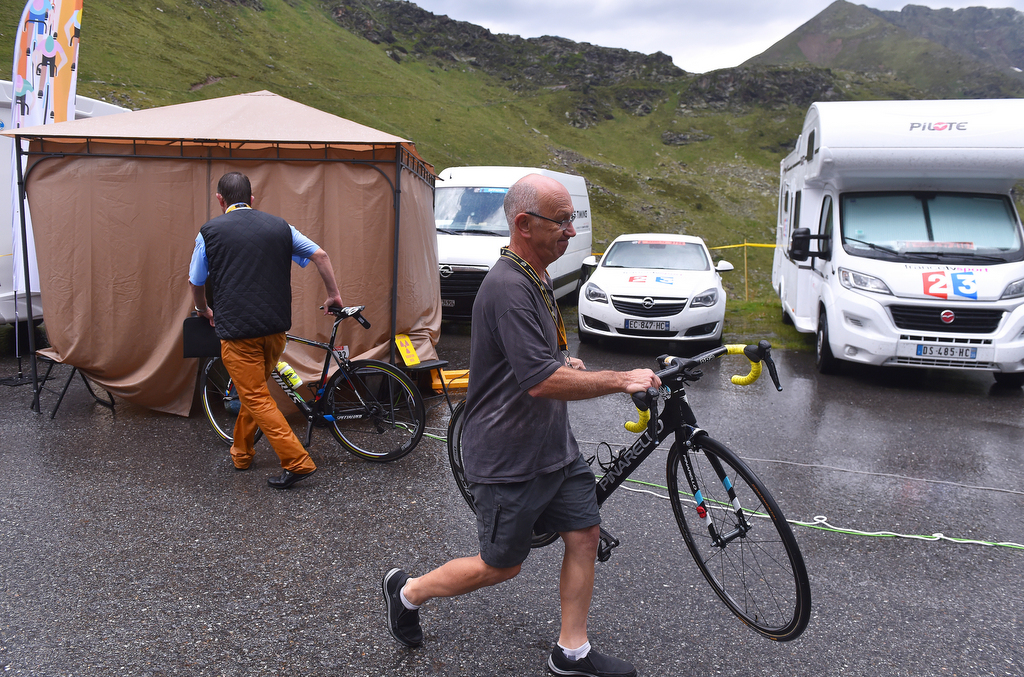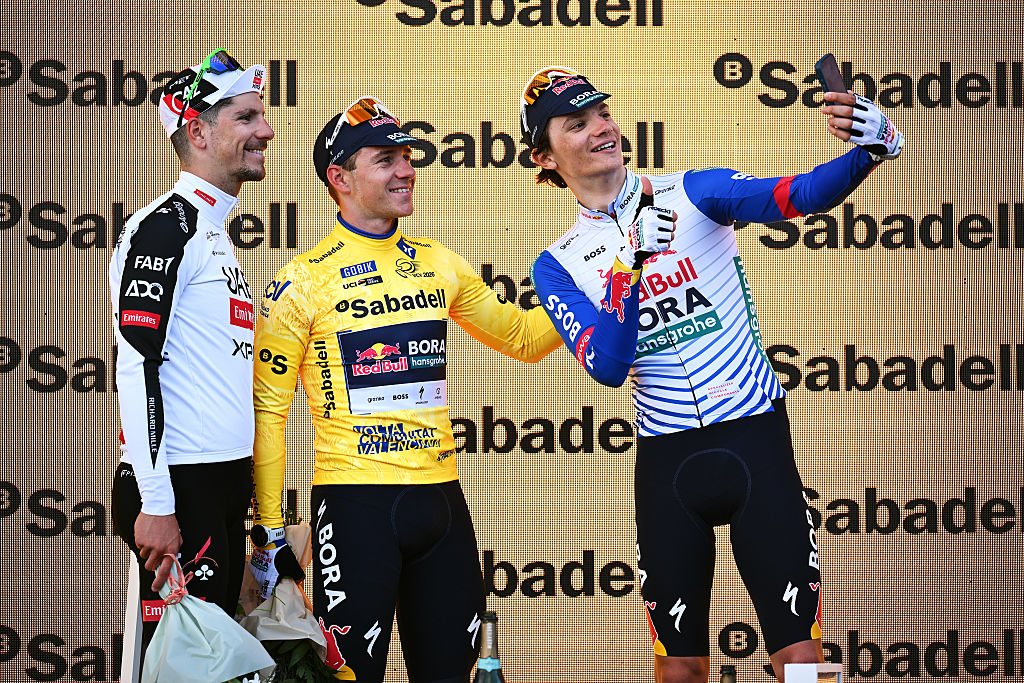No cases of mechanical doping at the Tour de France says UCI
3773 checks done with tablet, x-rays and thermal imaging
The latest race content, interviews, features, reviews and expert buying guides, direct to your inbox!
You are now subscribed
Your newsletter sign-up was successful



The UCI has confirmed that no cases of mechanical doping were discovered during the Tour de France after 3773 tests were carried out using the famous blue magnetic resistance tablet, with other checks done via thermal imaging in race and with x-rays at the end of a number of key mountain stages.
The UCI claimed that over 10,000 checks have now been carried out in different disciplines and in different gender and age categories. To date, only one case of mechanical doping has been revealed and sanctioned after a rudimentary hidden motor was discovered in one of the bikes of Belgian under 23 rider Femke Van den Driessche at the 2016 UCI Cyclo-cross World Championships in Zolder in Belgium. That lead to her being given a six-year ban and a significant fine by the UCI Disciplinary Commission.
The UCI and its Technical Manager Mark Barfield have tried to send out a strong message of deterrent to anyone thinking of using mechanical doping in the sport in recent months after reports that mechanical doping has been used in recent years in the professional peloton, with a difficult to find magnetic wheels apparently replacing hidden motors as the method of choice.
Barfield came under fire from France Television programme Stade 2 and Italian newspaper Corriere della Sera, who have investigated mechanical doping in depth. They suggested that Barfield had somehow disrupted a police investigation into mechanical doping by French police at the 2015 Tour de France by tipping off the CEO of Typhoon e-bike brand about the police activity and their search for ‘a Hungarian’, believed to be Stefano Varjas, who was working for Typhoon bicycles at the time and is considered the ‘mastermind’ of hidden motors in bikes.
UCI President Brian Cookson claimed that the UCI has left no stone unturned as it tried to detect mechanical doping at the Tour de France.
“I want to thank the UCI staff for its hard work and dedication in testing so many bikes over the past three weeks. This demonstrates our absolute commitment to leave no stone unturned in a matter that if not tackled properly, could seriously damage the renewed reputation of cycling,” he said in the UCI statement confirming that no cases of mechanical doping were discovered at the Tour de France.
“I would also like to thank the riders, the teams, the organiser of this year’s Tour, as well as the French police – in particular the Office Central de la Lutte contre les Atteintes à l’Environnement et à la Santé Publique (OCLAESP) – for their co-operation and support. We will continue to test bikes heavily throughout the rest of the season, and do everything in our power to make sure this form of cheating stays out of our sport”.
The latest race content, interviews, features, reviews and expert buying guides, direct to your inbox!

